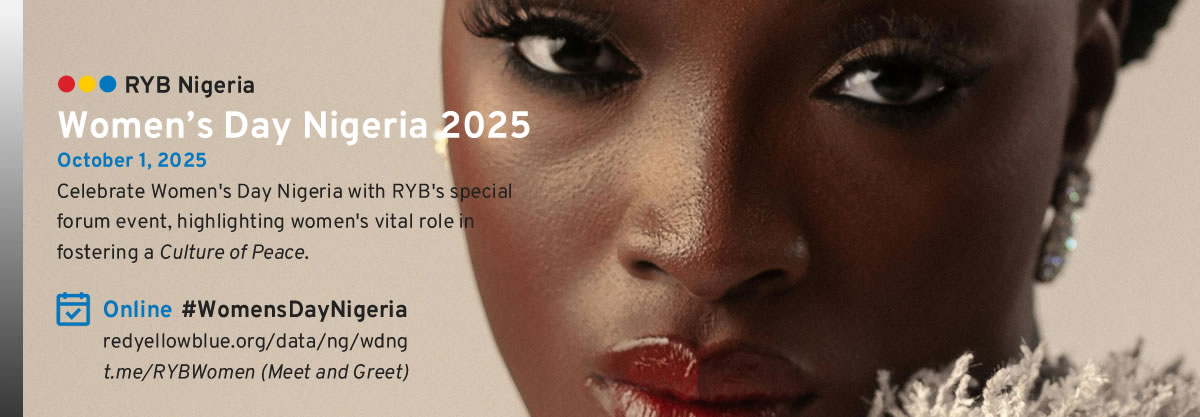
Women’s Day Nigeria 2025
Women's Right to Vote in Nigeria / October 1, (1979)
NG
When did women get the right to vote in Nigeria?
The story of women’s suffrage in Nigeria is deeply intertwined with the country’s colonial history, independence movement, and ongoing struggle for gender equality. Unlike many Western nations where women’s suffrage emerged from organized feminist movements, Nigeria’s path to women’s voting rights was shaped by both colonial policies and indigenous advocacy.
Colonial Period and Early Developments
Prior to British colonization, various Nigerian societies had different traditional systems of governance. In many pre-colonial communities, particularly in the south, women held significant social and political roles. Among the Yoruba, women’s organizations like the Iyalode council influenced community decisions, while Igbo women utilized collective action through systems like mikiri (women’s councils) to address their concerns.
However, British colonial rule, formally established with the amalgamation of Northern and Southern Nigeria in 1914, imposed a system that largely excluded women from formal political participation. The colonial administration operated on Victorian gender norms that relegated women to domestic spheres.
The First Steps Toward Women’s Suffrage
The first limited form of elections in colonial Nigeria came with the Clifford Constitution of 1922, which introduced a Legislative Council with four elected members. However, the electoral franchise was extremely restricted:
- Only male British subjects or naturalized persons
- Resident in the electoral district
- At least 21 years of age
- With property valued at £100 or more
These restrictions effectively excluded all women and most Nigerian men from voting.
The Richards and Macpherson Constitutions
The Richards Constitution of 1946 expanded regional representation but maintained similar voting restrictions. The real breakthrough for women’s suffrage came with the Macpherson Constitution of 1951, which:
- Granted limited suffrage to women in Southern Nigeria (primarily in the Eastern Region)
- Maintained restrictions against women voting in Northern Nigeria due to religious and cultural practices
This marked 1951 as the first year when some Nigerian women could legally vote, though only in Eastern Nigeria. Even then, women faced property and tax qualifications that limited participation primarily to the educated elite.
Regional Variations in Women’s Suffrage
The implementation of women’s suffrage rights varied significantly across Nigeria’s regions:
Eastern Region
Women in the Eastern Region gained the right to vote in 1951, with the first female voters participating in the 1951 regional elections. This region, dominated by Igbo communities with traditions of women’s participation in governance, was most progressive regarding women’s political rights.
Western Region
The Western Region, primarily Yoruba, granted women voting rights in 1954 through its regional constitution, although with property and tax qualifications that limited the number of eligible women voters.
Northern Region
The Northern Region, with its predominant Islamic culture and practice of kulle (female seclusion), maintained restrictions on women’s suffrage until 1976, decades after other regions had granted these rights.
Universal Adult Suffrage
Full universal adult suffrage for all Nigerian women, regardless of property ownership, education, or regional location, was officially established on October 1, 1979, when Nigeria’s new democratic constitution came into effect following years of military rule. This constitution established:
- Equal voting rights for all citizens, male and female, aged 18 and above
- The removal of property qualifications
- Equal rights to stand for election
The constitution had been approved by the Constituent Assembly on August 29, 1978, but came into force on October 1, 1979, coinciding with Nigeria’s Independence Day celebrations and marking the beginning of Nigeria’s Second Republic. The general elections held on July 7, 1979 (presidential election on August 11, 1979) represented the first time women across all regions of Nigeria could vote without property or tax restrictions.
Women’s Political Mobilization
While the legal right to vote was established progressively between 1951 and 1979, Nigerian women faced numerous practical obstacles to political participation. Notable women’s rights advocates who pushed for greater political inclusion included:
- Funmilayo Ransome-Kuti, who led the Abeokuta Women’s Union in the 1940s
- Margaret Ekpo, who mobilized women voters in the Eastern Region
- Gambo Sawaba, who fought for Northern women’s political rights despite persecution
These pioneers organized protests, literacy campaigns, and voter education programs to ensure women could effectively exercise their newly won rights.
Contemporary Challenges
Despite having legal voting rights for decades, Nigerian women continue to face challenges in exercising their political voice:
- Cultural barriers and gender norms that discourage women’s public participation
- Religious interpretations that limit women’s roles in some communities
- Logistical challenges including safety concerns at polling stations
- Economic dependencies that may influence voting choices
- Lower literacy rates among women in certain regions
Progress and Representation
While women’s voting rights are now firmly established in Nigerian law, women’s representation in elected offices remains disproportionately low. As of 2023, women occupy less than 10% of seats in Nigeria’s National Assembly, one of the lowest rates of female representation in Africa.
However, women’s voter participation has grown substantially, with women constituting approximately 47% of registered voters in recent elections. Women’s advocacy organizations continue to work toward increasing not just participation as voters but representation as candidates and elected officials.
Future outlook
The journey to women’s suffrage in Nigeria began in 1951 with partial voting rights in Eastern Nigeria and culminated in universal suffrage on October 1, 1979. This progression—spanning nearly three decades and varying by region—reflects Nigeria’s complex religious, cultural, and regional diversity.
The achievement of women’s voting rights in Nigeria was not simply a colonial import or constitutional provision but reflected the activism of Nigerian women who demanded political inclusion. Today, while legal barriers to voting have been removed, the ongoing work focuses on transforming legal equality into substantive political representation and influence for Nigerian women in Africa’s most populous democracy.

